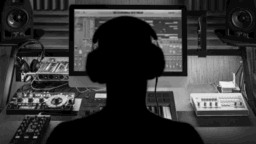The music industry’s income from China has long been a thorny issue, but important new data suggests the region will become increasingly lucrative in the next few years – with karaoke licensing one of rights-holders’ brightest hopes.
China is the most populous country on earth, with 1.3 billion citizens, yet is only the world’s 21st biggest recorded music market. According to the IFPI, recorded music in China generated revenues worth around US $82.6m in 2013 – less than the likes of Denmark, Belgium and Mexico.
But fresh figures revealed by China Music Business today show that the region’s PRO for music recordings and videos, CAVCA, saw a jump in licensing income from karaoke houses in 2014.
Although this money, 130 RMB (US $21m), was a drop in the ocean for the global business, it appears there’s gold in them hills: CAVCA – which was only established in 2008 – estimates that it currently collects from just 10% of 60,000 singalong clubs in China.
That means that around $190m is potentially being left on the table from karaoke bars – money the collection society is determined to get its hands on.
“Karaoke is a way of life in china, but it’s still a missed opportunity.”
And there could be plenty more where that came from, according to Ed Peto, founder of China Music Business and its parent company Outdustry Group – which represents western music companies and rights owners for market entry into China.
“Karaoke is a way of life in China, so the potential is huge, but when you consider that the current tariff is only set at around 9 RMB (US $1.5) per karaoke room per day, it represents a missed opportunity,” he told MBW.
“Over the coming years, if we see the percentage of karaoke houses being collected from go up, along with an increase in the tariff, then it starts to look really interesting.”
Current Chinese copyright law leaves record companies out in the cold when it comes to broadcasting or public performance royalties, which are only paid out to publishers and songwriters. That means that the vast majority of CAVCA’s income comes from licensing karaoke music and videos.
At a panel hosted by China Music Business at Beijing event DongDong in November last year, Deputy Director General of CAVCA, Ma Jichao, said that current karaoke collections were “far below market potential”.
CAVCA is now involved in around a thousand new cases to force clubs to pay up, according to Ma, involving a mix of lawsuits and negotiation with karaoke associations.
However, CAVCA itself is under fire from the record industry for keeping 50% of income as an admin fee, after costs. This compares poorly with admin fees at other recorded music PROs such as the UK’s PPL and the US’s SoundExchange.
CAVCA argues that, through its agent, it employs more than 400 people in 28 areas, carrying out the often dangerous nighttime work of encouraging karaoke houses to pay.
Of the money that is paid out by CAVCA, 60% goes to record companies and master rights owners, while 40% is paid to CAVCA’s publishing equivalent, the MCSC.
This is a major bone of contention for record labels, who not only own the rights to videos used in karaoke bars, but – unlike publishers – cannot currently collect any money when their music is used by China’s TV or radio broadcasters.
“It is really difficult to negotiate with the powerful chinese broadcasters as they are state-owned.”
However, the IFPI is lobbying Chinese lawmakers to enact legislation that will see sound recording owners paid for public performance and broadcast of their music in China. Reps are hopeful that this may even be enshrined into Chinese law by the end of 2016.
Said IFPI China Director Guo Biao: “The State Council is reviewing the bill but the Chinese [state-owned] broadcasters strongly oppose granting the rights, so we are entering into a second battle. [If we get through this then] the bill will be submitted to the National People’s Congress.”
As for the collection of musical works for publishers, progress is also being made in China – but in financial terms, it’s not yet anything to write home about.
In 2010, China’s State Council published a new tariff for broadcasting music rights. It had taken nine years to arrive, following the 2001 revelation of a Copyright law amendment to recognise that publishers should be paid.
“It is really difficult for the MCSC to negotiate with the powerful Chinese broadcasters as they are state-owned,” said the IFPI’s Guo.
By the end of 2013, the MCSC had signed agreements with 34 TV stations and 40 radio broadcasters, but annual income from these sources is now just 30m RMB ($4.8m).
That’s around a fifth of the money the music industry is already receiving from China’s karaoke bars.
“We’re talking about a growing range of revenue streams that didn’t exist seven years ago.”
Other stats from China Music Business suggest broadcasting contributes around 37% of MCSC’s annual income in China. Live performance brings 5%, background music (in shops, bars, restaurants etc.) makes up 20% with karaoke revenues hitting 17%.
But improvements in all of these areas are adding up.
Collected MCSC revenue in China has grown dramatically in the past four years – increasing from approx US $7m in 2009 to $18.1m last year, according to China Music Business data.
These figures have also been bolstered by recent examples of China’s NCAC/Ministry of Culture closing illegal music distribution websites.
“The numbers we are seeing here may be laughable against a backdrop of the fabled 1.3 billion population of China, but we are now talking about a growing range of revenue streams that didn’t even exist seven years ago,” added Peto.
“2008 saw the start of karaoke collections, 2010 was the broadcast tariff and collections for the songwriters, and 2016 could well be broadcast and public performance for the labels. They are being switched on, one by one.”Music Business Worldwide




